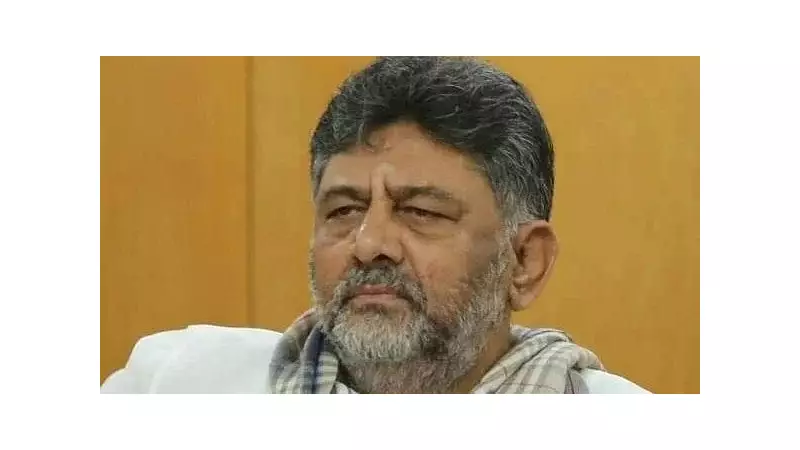
In a significant political development that has sent ripples through Karnataka's political circles, Deputy Chief Minister DK Shivakumar held a crucial meeting with Congress President Mallikarjun Kharge in New Delhi on Tuesday. The high-stakes discussion centered around the simmering demand for leadership change in Karnataka, bringing internal party tensions to the forefront just months before the critical 2024 Lok Sabha elections.
High-Stakes Meeting in Delhi
The meeting between the two powerful Congress leaders took place at Kharge's residence in the national capital, marking a pivotal moment in the ongoing power dynamics within the Karnataka unit of the party. DK Shivakumar, who also serves as the state Congress president, arrived prepared with his arguments and concerns about the current political arrangement in the southern state.
Sources close to the development revealed that Shivakumar articulated the growing sentiment among a section of party legislators who believe that rotating the chief minister's position could strengthen the party's prospects in the upcoming parliamentary elections. The Karnataka Pradesh Congress Committee chief has been increasingly vocal about what he perceives as an understanding within the party regarding power sharing.
The Leadership Tussle Intensifies
This meeting comes against the backdrop of persistent rumors and open discussions about leadership change within the Karnataka Congress. The current arrangement features Siddaramaiah as Chief Minister and DK Shivakumar as his deputy, a compromise solution reached after the party's impressive victory in the May 2023 assembly elections.
Political observers note that Shivakumar has been building momentum around the leadership issue for several weeks. His supporters argue that the original understanding involved a rotational chief minister system, though this has never been officially confirmed by the party high command. The timing of this meeting is particularly significant as the Congress prepares its strategy for the 2024 general elections, where Karnataka's 28 Lok Sabha seats could play a decisive role in national politics.
The state unit has been witnessing increasing tension between supporters of both leaders, with public statements and counter-statements creating an atmosphere of political uncertainty. While Siddaramaiah has maintained that there is no such agreement about rotation, Shivakumar's camp has been equally insistent about the existence of such an understanding.
Broader Implications for Congress Party
This leadership question extends beyond Karnataka's borders and could have serious implications for the Congress party's national prospects. Karnataka represents one of the few major states where the Congress holds power, making its stability crucial for the party's national narrative. Any internal conflict or leadership change at this juncture could potentially disrupt the party's carefully laid plans for the parliamentary elections.
The meeting also highlights the delicate balancing act that Congress President Mallikarjun Kharge must perform as he navigates between competing factions within the party. As a senior leader from Karnataka himself, Kharge understands the complex caste equations and regional dynamics that influence the state's politics. His decision on this matter could set important precedents for how the party handles similar situations in other states.
Meanwhile, Chief Minister Siddaramaiah has been focusing on governance matters and implementing the party's guarantee schemes. His administration has been working aggressively to fulfill election promises, which many believe is an attempt to consolidate his position and demonstrate that there is no need for leadership change when the government is performing well.
The outcome of this meeting remains unclear, but political analysts suggest that the party high command is likely to proceed cautiously. With the Lok Sabha elections approaching rapidly, the Congress leadership cannot afford prolonged internal conflict in one of its most important states. The decision they make could either unite the party or create deeper divisions at the worst possible time.
As the political drama unfolds, all eyes are on Delhi and Bengaluru, waiting to see how the Congress leadership resolves this delicate situation. The party's ability to manage internal democracy while maintaining discipline could determine its performance in the crucial upcoming elections.






